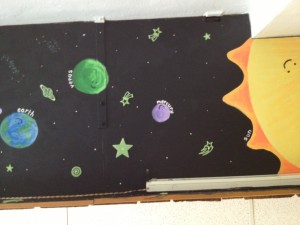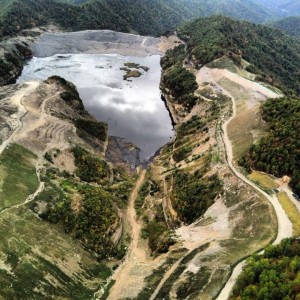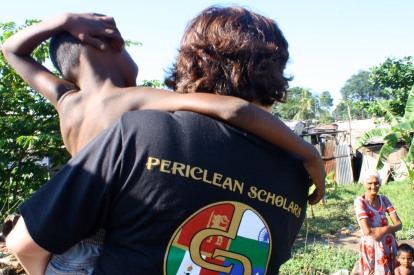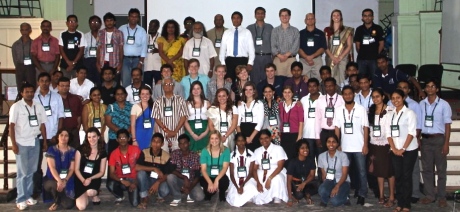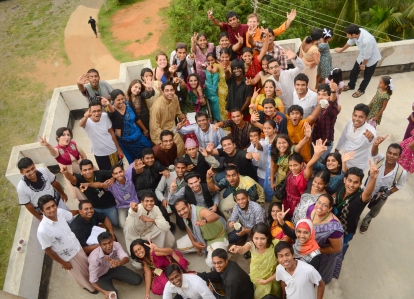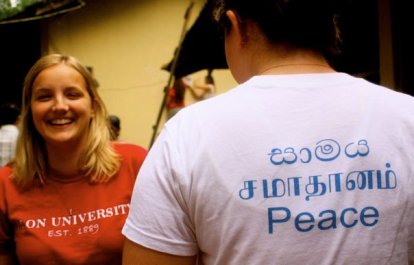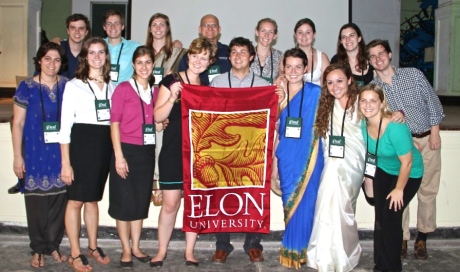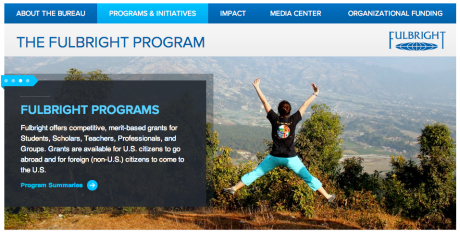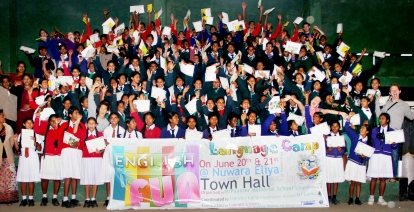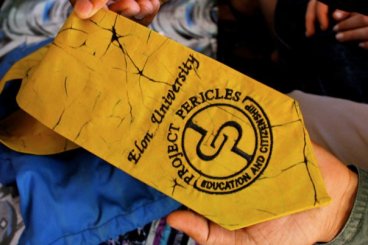Overview
This weekend, three members of the Periclean Class of 2016 had the opportunity to attend the Summit for Transformative Action in Raleigh, NC. We spent three days in eye-opening, life-changing workshops, sessions, and lectures, discussing best practices for social entrepreneurship, civic engagement, and collaborative group work. We learned about effective methods for facilitating group collaboration and participated in activities to develop our own personal leadership and confidence. Saturday evening several Pericleans joined us for a networking party to meet some of our new colleagues and enjoy trapeze performances and a participant talent show at Cirque De Vol, also in Raleigh. This was truly a life-changing summit and we are so thankful for having had the opportunity to participate and meet amazing people. We’ve attempted to capture some of the best take-aways from the weekend below–we hope you enjoy!
Take Away Tools
Throughout the weekend, we participated in a variety of icebreakers, team builders, and other activities geared toward improving creativity and group culture. We’ve summarized a few tools below that we’re planning to use with our class and that we hope that you will find useful in your group work in Periclean–and beyond!
-Failure activity
-
Instructions: Take an hour, walk around outside and see how many times your group can fail! Ask ridiculous questions of complete strangers (without endangering yourself or harassing anyone, of course) and reflect on what you accomplish and what you fail!
-
Goal: Realize that failure is not necessarily a bad thing. It gives you knowledge and experience, and allows your next attempt to be better.
-Deep connections
-
Instructions: Find a partner (someone you don’t know well) and ask each other questions like “What is your favorite memory?” and “If you could invite anyone in the world to dinner, who would it be?”
-
Goal: Create a deeper relationship, which allows for more constructive conversations in the group as well as individually. Once having this conversation with just one person, a person is more likely to have similar conversations with other people.
-Speed dating networking
-
Instructions: Spend five minutes with someone and tell them your biggest dreams for yourself or your project.
-
Goal: Get to know others on a deeper level and be inspired by the great ideas and thoughts of the people you speak with.
-Improv exercises
-
Instructions: Each exercise is different and can be facilitated easily. One example is: Find a partner (someone you don’t know well) and assign each person to be either person A or person B. The first round of the exercise, Person A says either “You are a ____.” or “You have a ______.” Then person B must speak for around 3 minutes creating a story to explain the statement that person A gave person B. Afterwards, the roles switch and each pair does the exercise again, so that each person gets to experience both sides of the exercise.
-
Goal: To broaden the comfort zones of the people in the group and teach that in group discussions nothing is wrong- Don’t say “no”, say “yes, and…”
-Negative & positive thinking
-
Both negative thinking and positive thinking are essential tools when planning a project or finding partners. Positive thinking is important to decision making because everyone needs to feel comfortable in the group environment. There needs to be an engaged atmosphere where everyone is comfortable sharing their thoughts and all ideas are accepted. Negative thinking comes into this process once the idea had been shared and the group points out what obstacles will be faced with that idea. Although the word “negative” may have a specific connotation that invokes the thought of something bad, negative thinking does not mean that the idea is disregarded, it simply means every possible problem with the idea is evaluated.
Connections
Perhaps the most valuable part of the conference was having the opportunity to network with an incredible collection of people–from students at other universities to professional social entrepreneurs and program developers. We made a number of contacts with students, entrepreneurs, and professionals who have worked in Honduras in agriculture, fair trade cooperatives, and in a variety of other spheres. We also had the opportunity to connect with Duke University’s Director of Latin American Studies–an absolute wealth of information about the entire region– and an Ugandan social entrepreneur who gave us valuable advice about coping with corrupt governments. Other entrepreneurs provided us with ideas for improving our civic engagement and exciting opportunities for collaboration in the future. We were also excited to bump into a few friendly faces, including the director of Haiti Hub, a partner of the Periclean Class of 2015, and Jennifer DeSimone, a member of the Periclean Class of 2007–the first class to work with Honduras! Jennifer collaborated with Dr. Arcaro to provide us with this incredible opportunity–we are so immeasurably grateful to her! We look forward to nurturing our connection with Jennifer and the many other wonderful individuals we had the good fortune to meet this weekend.
Future Plans
We have started contemplating how we want to use the information we have been given and have started making plans as to how we will implement it in our group and in possible projects. We want to maintain and develop the relationships that we have started to build with others who have similar goals, so that we can learn from their mistakes and successes. We especially want to foster the relationships that we made with people who have connections to Honduras, who can help us find partners and give us insight into what strategies may work and others that have been tested and failed. They can add more perspectives to our projects and will no doubt be invaluable resources as we move into a certain topic or region of the country.
Another idea that we have been forming is to create a civic engagement or social entrepreneurship consortium in the triad area that will bring together these types of people to connect, network, and share ideas and experiences. Directly related to our Periclean group, we are working on finding a class period, and possibly a Pan-periclean event, that we can facilitate and use the themes and exercises from the workshops to illustrate the concepts we discussed at the summit.
-Erin, Nick, and Caley
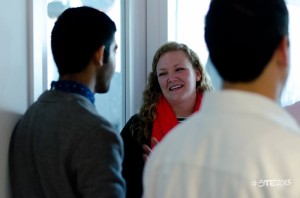
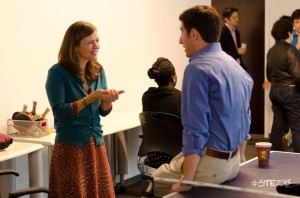
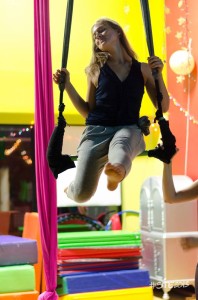
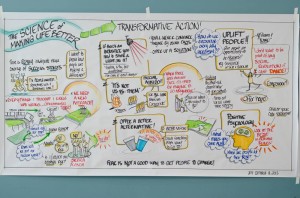
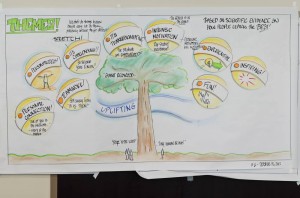
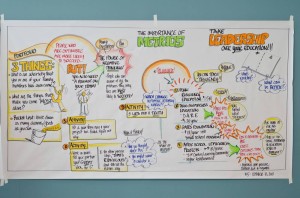
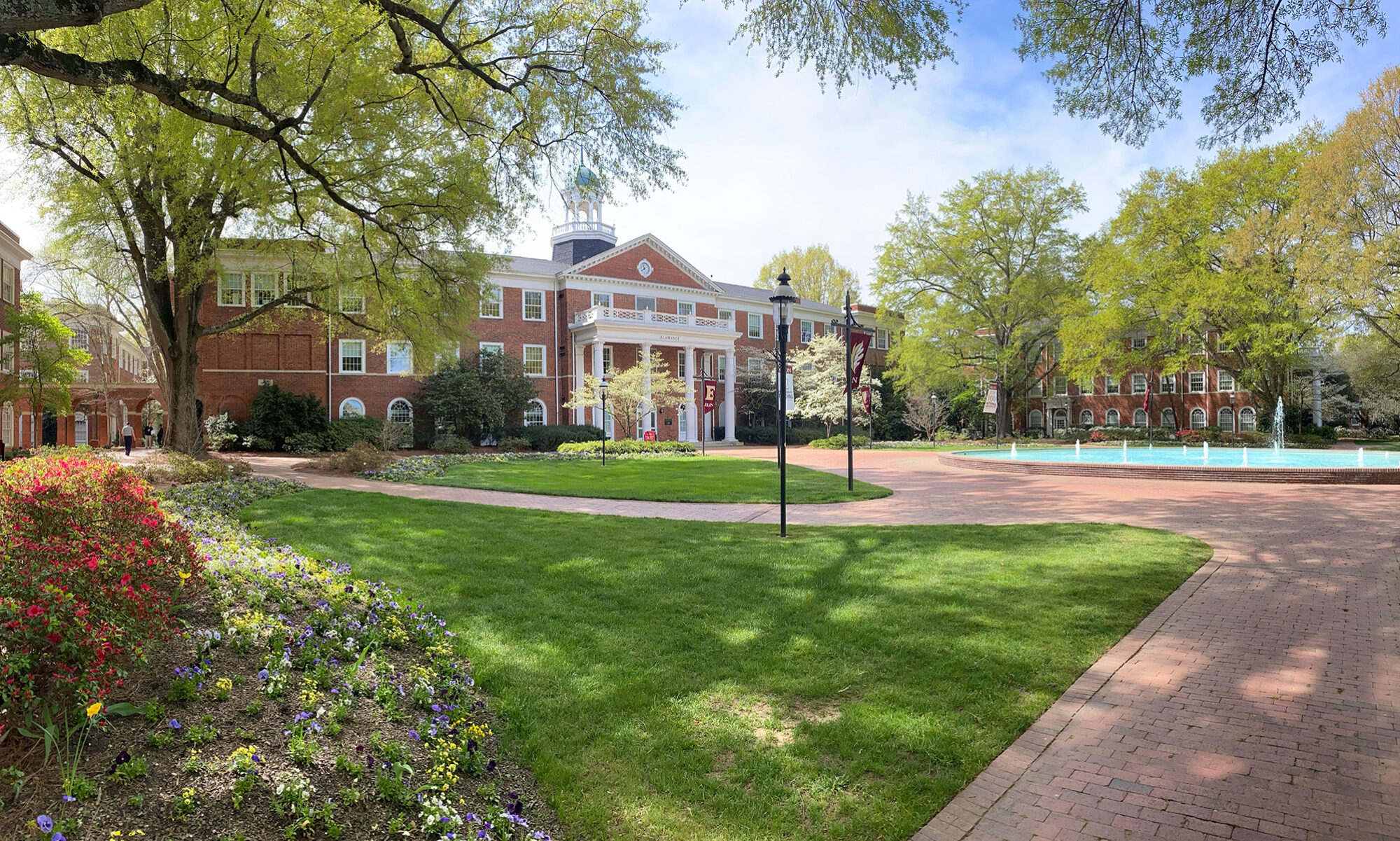

 Follow
Follow
